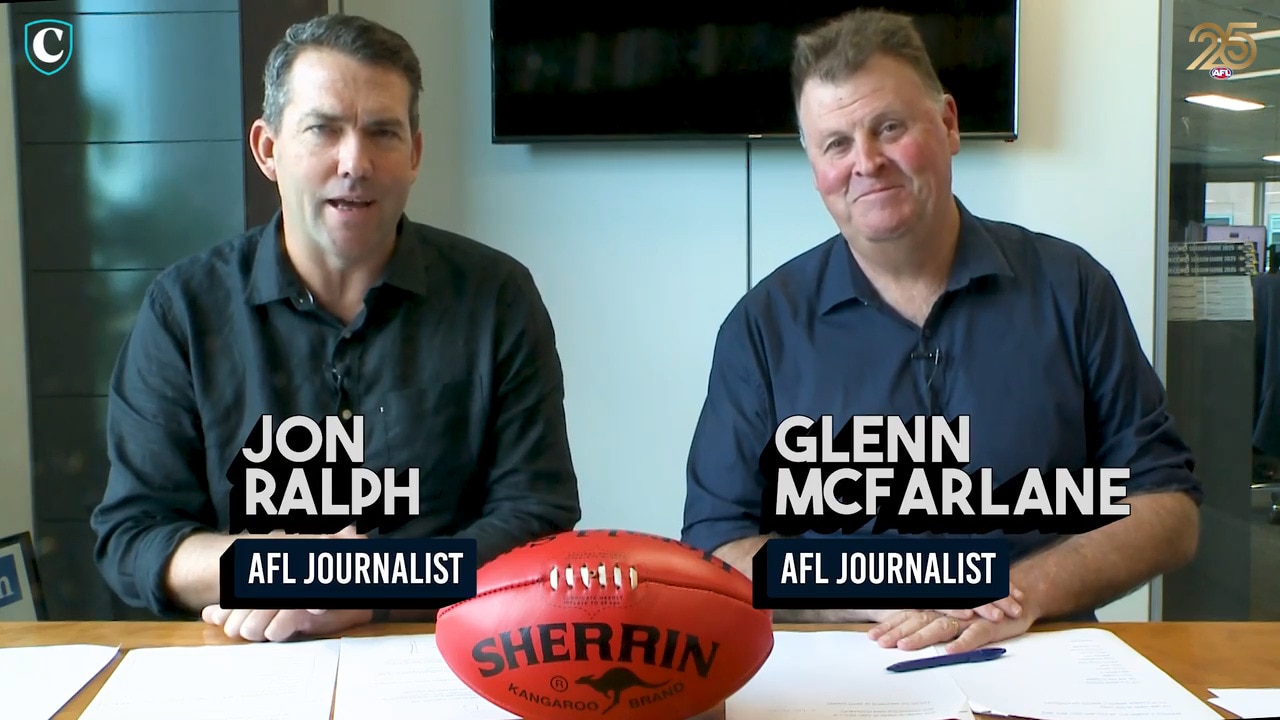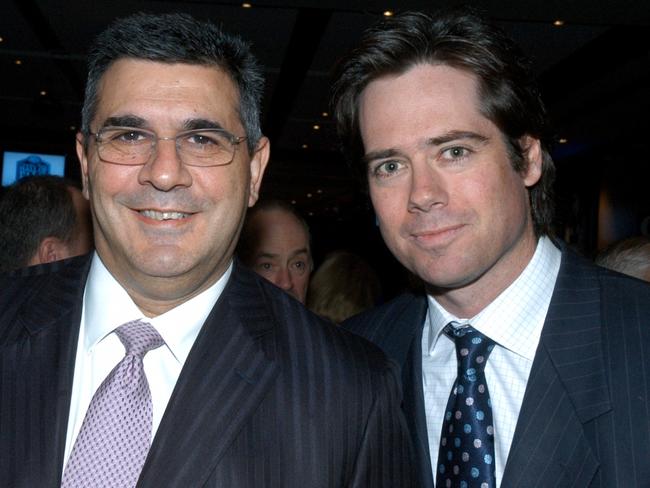AFL 25: Michael Warner’s 25 biggest footy powerbrokers of the century so far
This century, the AFL – once described as ‘cashed up bogans who did what they wanted’ – has wielded unrivalled power and influence over Australian sport. But who is the true top dog?

AFL
Don't miss out on the headlines from AFL. Followed categories will be added to My News.
Few were more scathing of the suits that ruled the AFL after the turn of the century than veteran litigator Steven Amendola.
“They looked to behave like a bunch of cashed-up bogans who thought they could do what they wanted,” Amendola famously declared of the game’s administration at the height of the Essendon drugs debacle.
Tax-exempt and answerable to no-one, the world governing body of itself, the AFL under chief executive Andrew Demetriou and later Gillon McLachlan – ranked No. 1 and 2 in the Herald Sun’s top 25 footy powerbrokers of the century – wielded unrivalled power and influence over Australia’s sporting landscape.

The late Victorian premier John Cain, a long-time member of the MCG Trust, once said the state had never known an entity with as much power as the modern day AFL.
“They choose their own successors, that’s always a danger, in any field of endeavour, because you tend to choose people who will perpetuate what you’ve done,” Cain said before his death in 2019.
Rivers of gold flowed into AFL HQ thanks to mammoth TV and commercial deals and sky high ratings and club memberships.
Australian Council of Trades Union secretary turned AFL commissioner Bill Kelty rightfully acknowledges that it was Demetriou who lifted the league with “the most significant set of commercial decisions in the history of the game”.
McLachlan would turbo charge the TV rights and stadia deals under an arrangement where the once powerful AFL commission was relegated to an almost honorary role at arm’s length from the day-to-day operations of the executive.
It’s hard to argue with a scoreboard of rude financial health and innovations including the creation of the AFLW competition and Gather Round, but it was in the arena of integrity investigations and the treatment of football people where the hubris drifted into bullying and blatantly compromised outcomes.
Legal professionals who came into contact with the league’s brutal “justice system” expressed astonishment at the brazen conduct of the AFL’s officials through episodes such as the Melbourne tanking affair, West Coast Eagles illicit drugs crisis, Bombers doping saga, Talia brothers leaking case and Hawthorn racism fiasco.
Key to the success of the AFL empire was a system of co-dependency where senior club officials, journalists, broadcasters and player agents turned a blind eye or were complicit in the behaviour.
A band of influential club presidents and chief executives such as Eddie McGuire, Richard Colless, Jeff Kennett, Peter Gordon, Andrew Pridham, Jeff Browne, Brian Cook, Brendon Gale and Trevor Nisbett would ensure that business wasn’t always on the AFL’s terms, but many, including Pridham, who pushed unsuccessfully for a sweeping structural review of the entire competition in 2020, found that keeping clubs united on issues was akin to herding cats.
Under new CEO Andrew Dillon there is an opportunity for reform, but the jury’s out on whether he has the stomach or desire to seek it.



